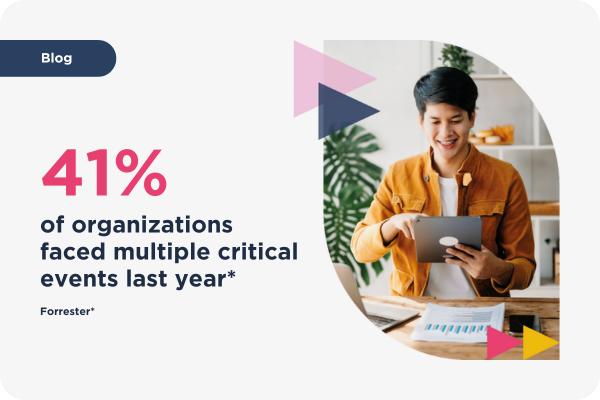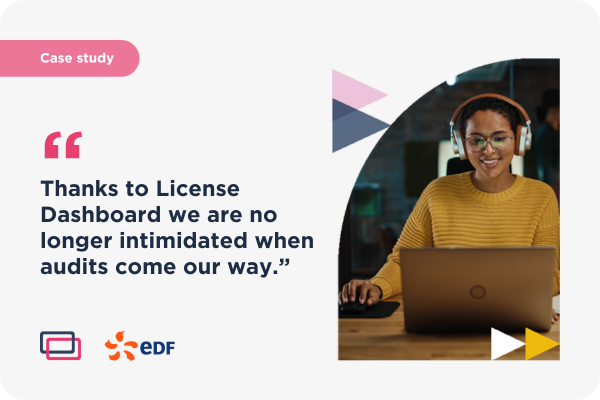Our Solutions Director, Sean Robinson explores how effectively utilizing the right data enables businesses to power successful digital transformation and maintain agility.
Digital transformation is a key topic for organizations of varying sizes and industries, but with many businesses focused on deploying new technology as a way to achieve modernization, they are missing a critical opportunity to analyze and utilize their data as part of the process.
Data unlocks intelligence and provides crucial insights that can highlight important optimizations, such as how to improve the end-user experience, where you can reduce time and costs, or the potential to lower your company’s environmental impact through the use of technology. Working with the data available to you can also give you an understanding of exactly which technologies your employees are already using, enabling your organization to move forward with a modern approach.
Utilizing data to enable agility in an ever-changing environment
As the world changes, organizations must change too. Using out of date software will prevent your business from progressing and will remove your competitive edge.
The right data will help to keep your business agile, highlighting changes within your IT estate as they happen. This agile approach allows your teams to proactively adapt and change software or agreements where and when they are needed, meaning that the focus can shift almost immediately but your organization will remain in control of its environment.
Making data transformation the foundation of agile digital transformation
The efficient use of real-time data is a huge part of digital transformation. Understanding exactly what your organization (and its employees) need is what should drive an agile approach, enabling you to pinpoint what needs changing and build a plan to suit your organization’s wider strategy.
However, this plan doesn’t need to be rigid. By ensuring agility is considered within your digital transformation strategy, if something arises, it means you can shift the focus straight away with little impact to the wider business.
Ensuring data utilization across your entire organization
Often, organizations have a wealth of extremely valuable data available to them, but don’t make effective use of it – or more commonly – not everyone is making use of it. To make this data more accessible and more widely used during digitalization, the following is important to consider:
- Making BI reporting available to all department
- Sharing information that is important to each department
- Including each department and asking exactly what they want to know
- Ensuring that data is being collected continuously – IT doesn’t stand still, and you need to be aware of any changes within your IT environment immediately, allowing you to rapidly act on them
Empowering data-driven decision making across the organization
Including every team and sharing information tailored to each department in a digestible format, is crucial for facilitating the use of data in decision making across your business, particularly when it comes to digital transformation. For example, your finance team will likely be focusing on costs and wastage, whereas IT will benefit most by being informed about usage. Not everyone needs – or wants – to see everything and over time too much of the wrong information can lead to a lack of engagement with data.
By making the right data easily accessible and not over complicating the numbers through the use of BI reporting tools, you empower people across your organization to utilize valuable data when making key decisions about your digitalization plans, resulting in better outcomes.
To explore how a data-driven approach can support your digital transformation strategy, contact us.


























